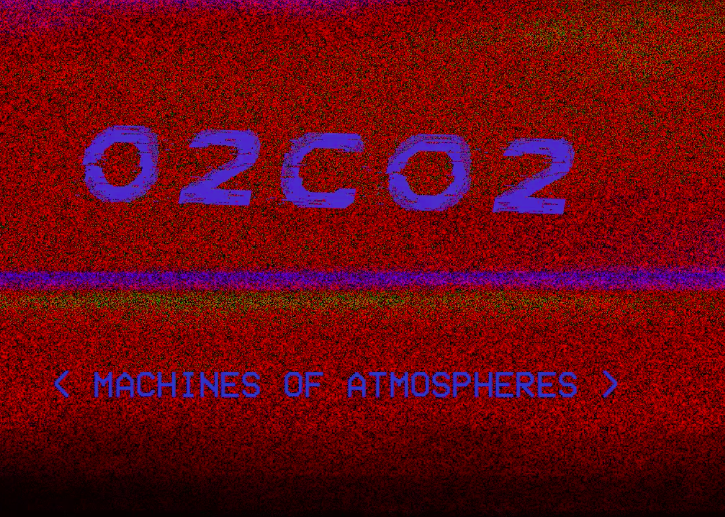
Via Project 02CO2, its team is investigating how the machine impacts and contextualizes artistic perception and how do data layers produced through digital activity change the perception of Earth and alter its atmosphere within the framework of Machines of Atmospheres.
Focusing on search engines as a source of CO2 emissions which are causing climate change, the project 02CO2 aims to create tools that are able to transmit the notion about effects of an everyday personal activity on the environment. Tracking of wi-fi usage during the conference on Politics of the Machines – Art and After (taking place in EVA-Copenhagen between the 15-17 of May 2018) provides the team with data for the real-time visualisation in form of a balloon installation of the visitors' minute to minute online behaviour. On a playful manner, participants are invited to perform search enquires in order to find answers to specific questions. 1 balloon channel is interactively reacting to the number of their enquiries and measures the related CO2 emission, while other channels that are corresponding to different data flow streams of the conference building contextualizes this private game in the frame of general everyday dynamics in web ecology of the particular space. In fact, one single Google search produces about 0.2 grams of CO2 according to Google Environmental Reports. Carbon dioxide (CO2) is one of heat-trapping (greenhouse) gases, which is released through both natural processes (such as volcanic eruptions) and human activities. There is indisputable scientific evidence that increased levels of greenhouse gases (GHG) cause global warming which leads to temperature rise, warming of oceans, melting of glaciers, the rise of sea levels and ocean acidification, increasing forest fires and deforestation, just to mention a few.
Biography
Atiq Hashmi is a technology enthusiast who likes to explore how technology is helping to visualize arts and cultures while maintaining the integrity of cultural data. Having graduated as an electrical engineer and working with latest digital technologies for the preservation of heritage sites in Pakistan, encouraged him to come to Europe under Erasmus Mundus program to explore Media Arts Cultures field at a broader level. Currently, he is studying the anthropogenic impacts on the environment and how these impacts can be visualized at an individual level to establish the connection of people with environmental issues at more personal level. In the latest project 02CO2 he is programming the robotic parts of the installation including the functions of the four stepper motors.
Adrienn Lestyán is a skilled writer and a passionate soul from Budapest, exploring the world at the intersections of arts, written words, along with mind and body practices. She has a background in communication, journalism, and blogging. In the recent years, based in Berlin, she used to be responsible for diverse cultural projects as a project coordinator for festivals, exhibitions and workshops related to wearable technology, fashion tech and critical making. She is particularly fond of interactive artistic experiments and installations enhancing the engagement of the audience to act, to communicate and to reflect.
Daria Vdovina is a representative of a young generation of an independent proactive Ukrainians, who used to work in the cultural sector primarily in curatorial and managerial positions. Nowadays she pursues a masters degree in digital art, technology and media culture within Erasmus Mundus joint degree Media Arts Cultures, focusing her studies on the interconnection and overlaps between technology and environment, digital culture and politics of the machines from the ecological perspective. She aims to explore concerns of Artificial Life and Urban Studies when it comes to discussions of such phenomena as Postnatural landscape, Smart City, Next Nature, BioDesign, architecture and BioArt.
